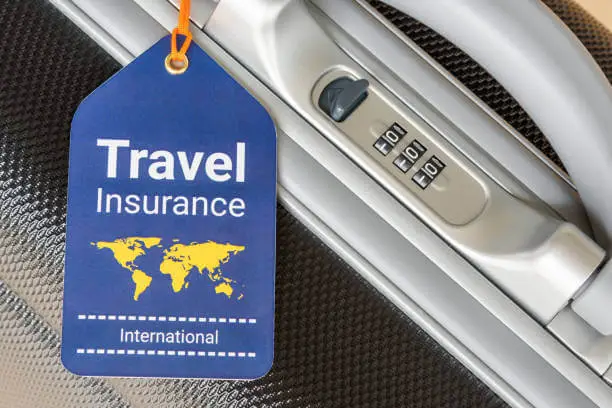What is the difference between Life Insurance and Travel Insurance? This is one popular question I get as someone with years of experience in the travel industry. People question whether it’s necessary to get travel insurance because they already have life insurance. Don’t mix up both insurance policies.
Life insurance provides a fixed amount in the case of death. This amount is assigned to the beneficiary indicated by the life insurance policyholder. On the other hand, travel insurance provides coverage should any unexpected event occur while you’re traveling, including missing luggage, or health emergency, among others.
By the end of this blog, you will have a detailed understanding of the differences between Life Insurance and Travel Insurance. Are you looking to provide your family with some security in case life happens to you or are you planning a vacation? Brace yourself and get set to learn all the information you will need to make smart insurance decisions.
Without further ado, let’s get into it.
What is the Difference Between Life Insurance and Travel Insurance?
First, let’s have a summarized snapshot of the differences in a tabular format.
| Factor | Life Insurance | Travel Insurance |
| Duration | It lasts for a lifetime | Lasts for the duration of your travel in most cases |
| Benefit | N/A – The policyholder is the recipient | Protects travelers financially during their trip |
| Beneficiary | Provides financial security to the beneficiaries of the demised in the event of death | N/A – Policyholder is the recipient |
| Health coverage | N/A | Provides health coverage for the duration of your travel |
| Investment | Types like the endowment plan and the money-back plan provide investment opportunities (more details on this subsequently) | N/A – Usually doesn’t provide any investment feature |
What Do You Mean by Life Insurance?
Just in case it’s not clear what life insurance is so far, I’ll explain in simple terms. Life insurance is a financial security tool that provides a one-time tax-free payment to the beneficiary upon the demise of a policyholder. Life insurance ensures your loved ones are not burdened with financial expenses such as mortgages, funeral costs, and debts when you’re no more. This gives you a sense of calm and reassurance knowing that your family is financially secure in case life happens which if we’re being honest, can happen to anyone anytime.
If there is anyone dependent on your income – parents, children, relatives – you need life insurance.
Suze Orman
The amount paid for insurance coverage varies depending on the insured individual’s age and health status. An individual who is healthy and younger may be required to pay less compared to older individuals with health defects.
What Does Life Insurance Cover?
Life insurance provides coverage for your loved ones if a tragedy strikes and you die. It covers most causes of death. Look through the insurance policy to find out exceptions. Life insurance coverage also varies depending on the type of life insurance in question. Here are life insurance types:
- Whole life insurance: This type provides coverage for the life duration of the policyholder.
- Endowment plan: This type entails a combination of life insurance and a savings or investment plan
- Term life insurance: This type of life insurance provides coverage for a set amount of time. The sum can be paid out only if the policyholder dies within a specific period specified in the insurance plan.
- Critical illness plan: In the case of this plan, the payout can be claimed if the policyholder is diagnosed with an illness specified in the insurance plan, like cancer or HIV
- Money-back plan: This type offers payment to the beneficiaries at specified intervals during the policy term, say at 5 or 10-year intervals.
What is the Meaning of Travel Insurance?
Travel Insurance provides coverage for risks associated with traveling. It provides financial protection if you face certain problems when you’re traveling or after you have arrived at your destination. Some situations where travel insurance comes in handy include trip cancelation, lost luggage, and medical emergencies during travel. This gives travelers some sense of security as they are prepared for any situation that might come up.
What Does Travel Insurance Cover Do?
Travel insurance covers all types of risks that may come up during your travel like delays, cancellation due to sickness or death, lost luggage, and some emergency medical costs. Your specific coverage will depend on the type of travel insurance you have chosen and they include:
- Trip cancellation insurance: This type of insurance can be claimed if you cancel your trip for reasons covered in the insurance policy. It compensates for the non-refundable expenses you may have spent while planning.
- Medical Insurance: This covers medical bills during travel
- Luggage loss/delay Insurance: This provides coverage if your luggage is delayed or lost during your travel
- Emergency evacuation Insurance: Provides coverage if the beneficiary experiences a major accident or sickness during travel and needs to be evacuated to the nearest health facility
- Accidental death/dismemberment insurance: Provides coverage for a situation where the beneficiary dies or sustains a major injury
You can learn more about what travel insurance does here.
Difference Between Life Insurance and Term Insurance
While life insurance provides coverage for beneficiaries upon the death of the policyholder, term life insurance is temporary, covering you for a fixed period, and is a type of life insurance. If the policyholder dies within this term. As earlier stated, there is the whole life insurance which covers the policyholder for the entire lifespan. On the flip side, the term life insurance will expire after the agreed-upon date has elapsed. Also, term life insurance is generally more affordable than whole life insurance.
What is the Difference Between Travel Insurance and Health Insurance
Travel insurance primarily covers issues related to a specific trip or period overseas. Travel insurance has been covered in detail in this blog so we’ll dwell more on health insurance. Health insurance offers comprehensive coverage for beneficiaries. It takes care of medical expenses that come from medications, routine medical visits, and medical admissions, among others. Also, travel insurance is usually for a short duration, in most cases, only for the duration of the travel while health insurance provides a more long-term coverage of medical-related expenses.
In conclusion, security is one important asset to have. It gives you peace of mind and protects you when life happens at any time. Life insurance and travel insurance both provide security from unexpected life events. To help you make the decision on which is more important, consider your current individual needs. Are you looking to travel soon with your family? Then you should consider getting travel insurance. Not convinced? Learn more reasons why you need travel insurance here.
In the case of life insurance, it’s always good to have it in place especially if you have dependants that rely on your income. I encourage you to leave your thoughts in the comments below and do well to check out other blog posts about travel insurance. See you in the next one.


